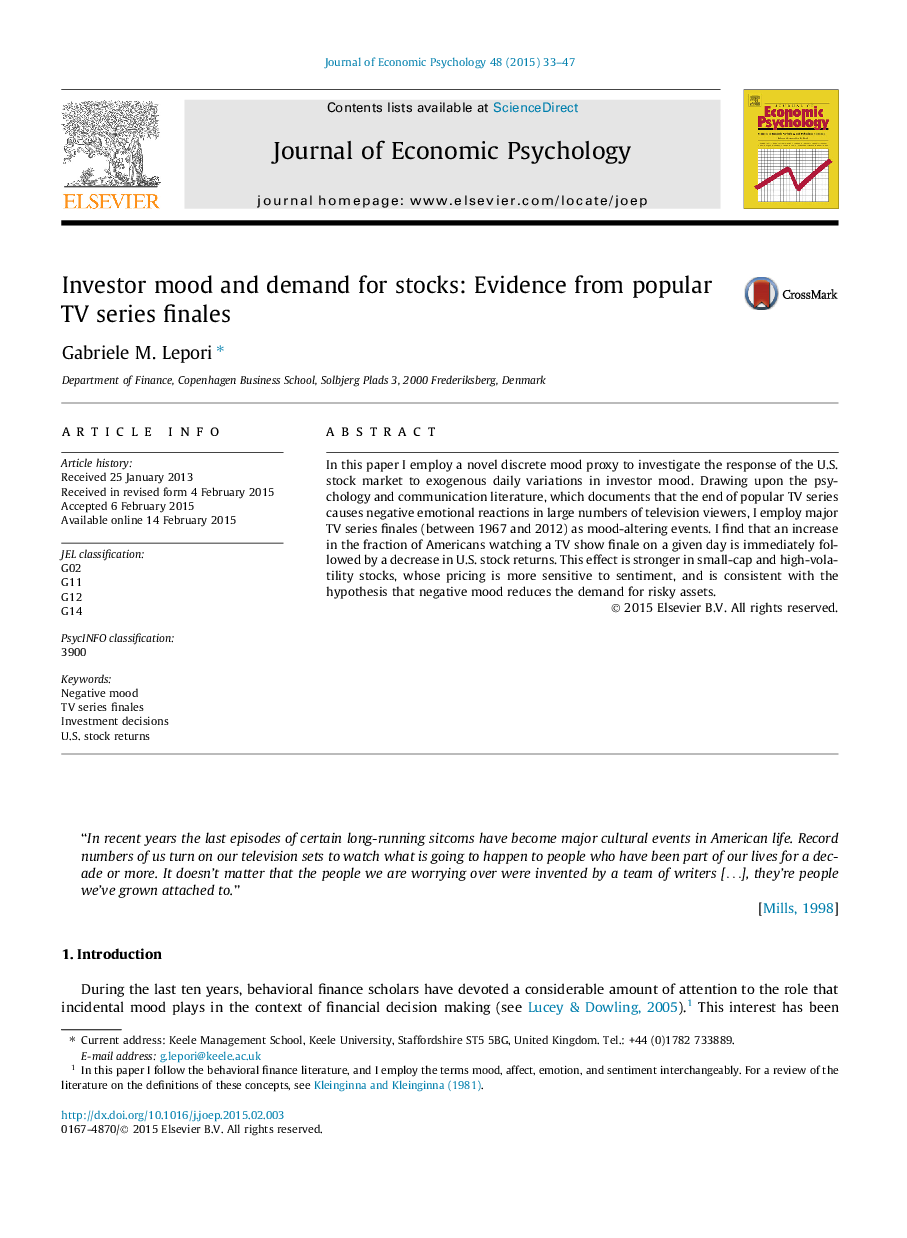| Article ID | Journal | Published Year | Pages | File Type |
|---|---|---|---|---|
| 7244716 | Journal of Economic Psychology | 2015 | 15 Pages |
Abstract
In this paper I employ a novel discrete mood proxy to investigate the response of the U.S. stock market to exogenous daily variations in investor mood. Drawing upon the psychology and communication literature, which documents that the end of popular TV series causes negative emotional reactions in large numbers of television viewers, I employ major TV series finales (between 1967 and 2012) as mood-altering events. I find that an increase in the fraction of Americans watching a TV show finale on a given day is immediately followed by a decrease in U.S. stock returns. This effect is stronger in small-cap and high-volatility stocks, whose pricing is more sensitive to sentiment, and is consistent with the hypothesis that negative mood reduces the demand for risky assets.
Related Topics
Social Sciences and Humanities
Business, Management and Accounting
Marketing
Authors
Gabriele M. Lepori,
